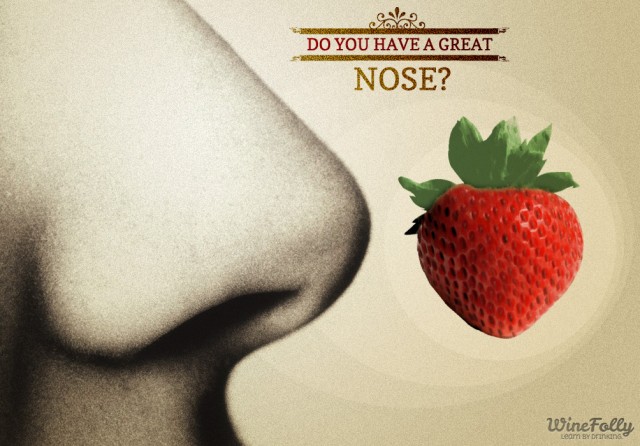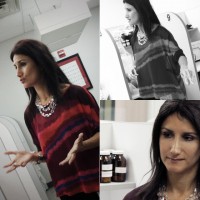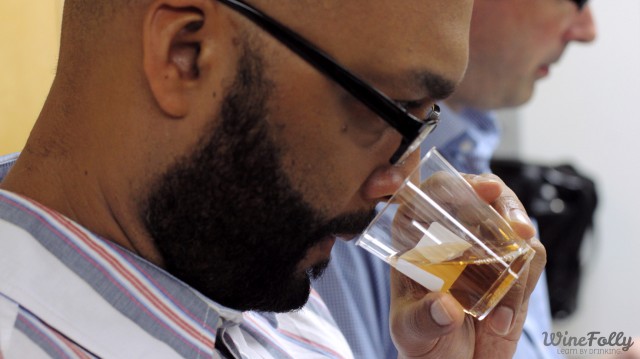Do You Have A Great Nose?
Do you have an extra sensitive sense of smell? Believe it or not, your nose could give you a salary of 70-90K* at a food or wine job as a sensory analyst.

Meet Antoinette Morano, a Sensory Technologist at Nomacorc in North Carolina. On the job, her peers call her “The Nose” because she uses her amazing sense of smell every day. Morano oversees sensory evaluations of wine and materials at Nomacorc–a synthetic wine cork company that produces up to 7 million corks a day.
*Based on salary data from foodtechnology.org and glassdoor.com. Our interviewee did not indicate her actual salary.

So you smell things for a living? Tell me more about what you do.
I have a BS degree in Foods and Nutrition with a minor in Food Science. The sensory world became an integral part of my life when I left college in pursuit of a career that would accentuate my acute sense of smell and taste and my love of food. I am a foodie. The journey began at a flavor and fragrance company in NJ where I trained to identify flavor raw materials and their use in foods, beverages and many other applications. This is where the flavor lexicon portion of my toolbox got filled. I was able to describe products more like a chemist rather than a consumer but, when need be, as a consumer as well.
What a Sensory Analyst does day to day Today my day could range anywhere from evaluating raw materials (resins) to check on their acceptability – to cork aroma testing – to describing wines from a connoisseur perspective or identifying faults in wine.
How does one find sensory analysis jobs and what is the demand for this type of expert?
Demand for sensory analysis positions can range from the pet food industry to the food industry to the wine industry. Basically, if there is a need to keep a pulse on how your products are performing from a sensory perspective or your competition, there may be a job waiting for you somewhere.

How does one get started to become a sensory technologist?
First and foremost, get a degree in Food Science / Sensory Science or a related field such as Home Economics / Food and Nutrition. Once you have a degree, join a division like:
- Institute of Food Technologists
- Society of Sensory Professionals
- ASTM Sensory Division
- Journal of Sensory Studies
- Pangborn
- various job forums
Can someone train their nose to be more sensitive?
Yes… By going through acuity screening tests, learning different raw materials and how they smell and by paying attention to your senses and things that are around you. I find the best way is to experience the food or drink that you are consuming (don’t just consume it, but feel it, taste it, sense it). So this is when my life in sensory is both a blessing & a curse. I am always in analytical mode when I taste or drink something. I break it down into elements (in my head) and sometimes out loud – aroma, texture, mouthfeel, flavor, aftertaste. People around me can become annoyed or intrigued. I really enjoy dining with other sensory professionals because we can do this all night and no one gets annoyed. We pick from each other’s plates as if it were warranted.

What time of day is your nose the most sensitive?
In the morning I am most sensitive.
Have you always had a sensitive nose?
Yes, it’s funny that I have been coined with the term the “The Nose” because my mother had coined me with the term “Naso Fino” which means thin nose. She said my nose was thin in a sense that I could smell anything and everything. I would know pulling into the driveway (when I still lived at home) that she had fried fish by just rolling my car windows down. That’s when she started calling me “Naso Fino”.
